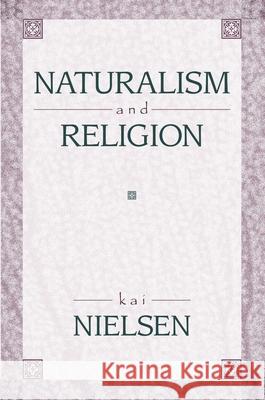Naturalism and Religion » książka
Naturalism and Religion
ISBN-13: 9781573928533 / Angielski / Twarda / 2001 / 508 str.
This elucidation and defense of naturalism argues that an uncompromising secular orientation is the best framework to utilize in trying to make sense of life and of society. Part one interprets religion in purely naturalistic terms and seeks to show that religious symbols arise solely from facts about human nature and society, specifically our needs, fears, and aspirations. Part Two examines arguments for and against naturalism, including the defenses of Sidney Hook, Ernest Nagel, Antony Flew, and critical reactions to their views. Special attention is given to the forceful critique of naturalism made by Jean Hampton. Part Three considers what the author regards as the strongest intellectual challenge to secularism and naturalism, namely that of Ludwig Wittgenstein and Norman Malcolm, D. Z. Phillips, Hilary Putnam, Rush Rhees, and Peter Winch, all philosophers deeply influenced by Wittgenstein.
Nielsen concludes that none of these critiques diminish the cogency and viability of naturalism as a way of making sense of our lives and our world.











